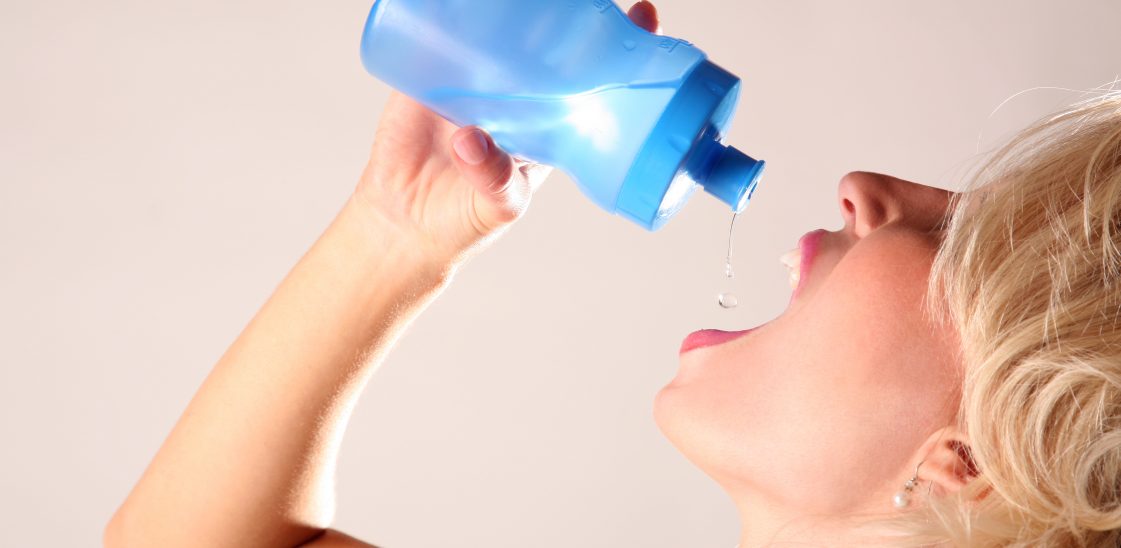
What causes dry mouth?
Having a dry mouth isn’t usually a sign of a serious problem, but it can be unpleasant. This condition, which is also called xerostomia, happens when the salivary glands in your mouth aren’t making enough saliva to ensure that your mouth stays moist. As well as potentially causing a range of uncomfortable symptoms, it can lead to other issues, such as an increased risk of tooth decay and indigestion[1].
Here, we take a look at the symptoms and causes of a dry mouth. We also explore some of the things you can do to prevent it, ranging from making changes to your lifestyle and diet to chewing sugar-free gum or sucking lozenges.
What are the symptoms of dry mouth?
Not producing enough saliva can have various effects, including making your saliva thick and stringy and creating a sticky, dry feeling in your mouth. It can also make swallowing, chewing and speaking difficult and give you a sore throat and hoarse voice. You might find it makes your tongue dry and grooved too, and it can make wearing dentures uncomfortable.
Dry mouth also increases your risk of having bad breath and it can change your sense of taste. It may interfere with your appetite and digestion as well[1].
What causes dry mouth during the day?
There are many possible causes of a dry mouth. One of the simplest explanations is that you are dehydrated. This could be because you haven’t drunk enough hydrating liquids, or perhaps because you have been ill or sweating a lot. Anxiety can make your mouth dry too. For example, you might notice that your mouth dries up if you have to make a speech or give a presentation to an audience and you feel nervous about it.
Various medications can also result in a dry mouth, including certain drugs for treating high blood pressure, depression and anxiety. A number of painkillers, antihistamines, muscle relaxants and decongestants can have this effect too. In addition, medical conditions such as oral thrush, diabetes and Sjogren’s Syndrome are possible triggers for a dry mouth, and radio or chemotherapy treatments are risk factors as well. A range of lifestyle factors can also lead to a dry mouth. Smoking or chewing tobacco can have this effect, as well as taking recreational drugs including methamphetamine and marijuana.
You might find that you are more prone to having a dry mouth as you age. This may be linked to other risk factors such as health problems, taking particular medications and your body’s ability to process medications. Some of the risk factors mentioned above will only affect you during the day, while others can impact you day or night[1].
What causes dry mouth at night?
The most common cause of a dry mouth that occurs specifically at night is mouth breathing. Breathing in this way causes moisture to evaporate, leaving you with a dry mouth and potentially a sore throat too[2]. You are more likely to breathe through your mouth when you have a cold and your nose is blocked[1].
Why do I wake up with a dry mouth?
As mentioned in the previous section, breathing through your mouth overnight can mean you wake up with a dry mouth and sore throat. Another risk factor is not taking in enough fluid before you go to bed. Overnight, your body doesn’t get a chance to rehydrate, and so if you don’t make sure you have plenty of water or other hydrating fluids before bedtime, you increase the risk of suffering a dry mouth first thing in the morning[1].
What can I do to prevent dry mouth?
There are many different things you can do to prevent a dry mouth. For example, take regular sips of cold water throughout the day and during and after meals, and keep a glass next to your bed in case you wake up during the night. You might also benefit from using a humidifier in your bedroom overnight.
Another tip is to chew sugar-free gum to encourage saliva production. Try to avoid drinking alcohol or caffeine where possible, as they will dehydrate you, and if you smoke, consider quitting. If you’re in the habit of using a mouthwash, choose an alcohol-free version. If you have a dry mouth and sore throat, you may want to try using lozenges to increase saliva production, fight infection and numb your throat pain.
You can also consult a pharmacist about the treatments available that can help to keep your mouth moist, such as sprays, gels and lozenges[1].
Should I see a doctor about dry mouth?
As outlined in the introduction to this post, a dry mouth is rarely a sign of a serious condition, but in certain circumstances, it is advisable to consult your doctor. For example, you should speak to a medical professional if a dry mouth is making it difficult to eat regularly, your mouth is painful, bleeding or swollen, you have sore white patches in your mouth, or you are having problems with your sense of smell that aren’t going away. You should also seek help if your mouth remains dry after trying pharmacy or home remedies for a few weeks[1].
Resources:
